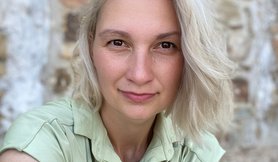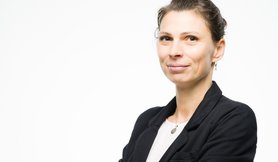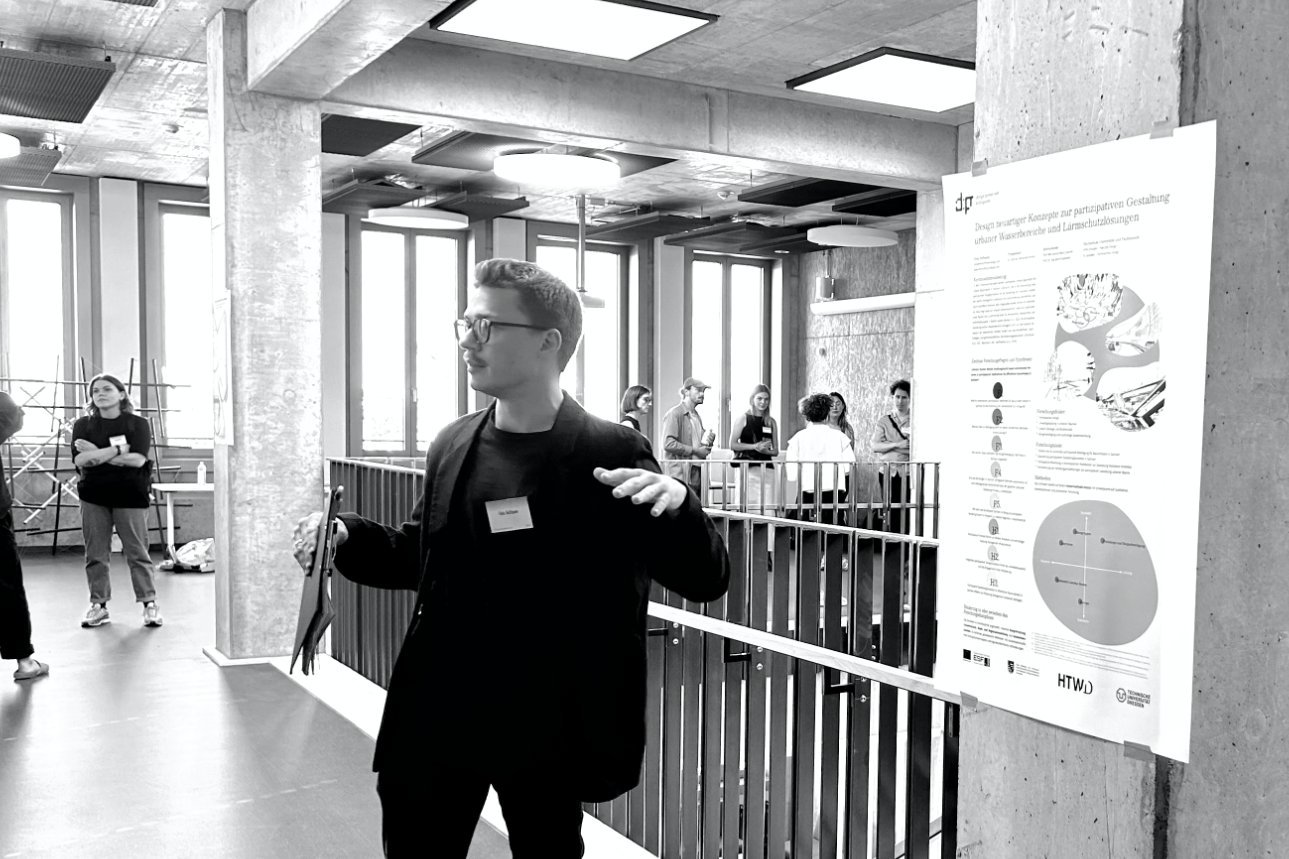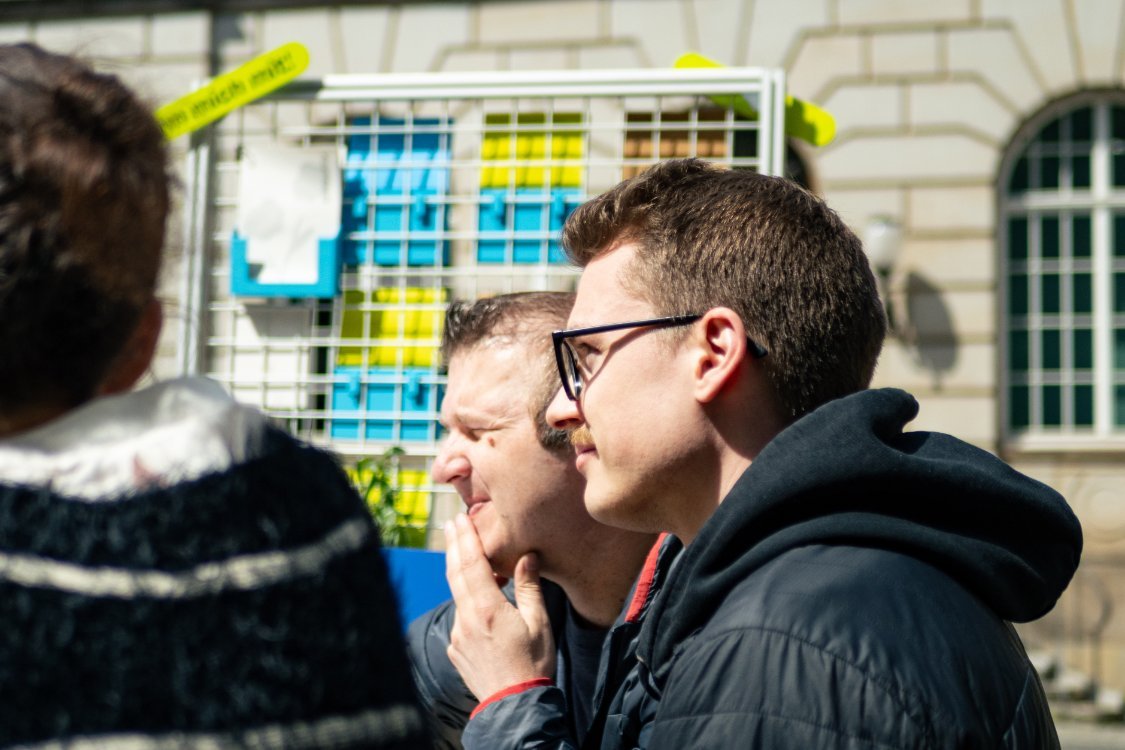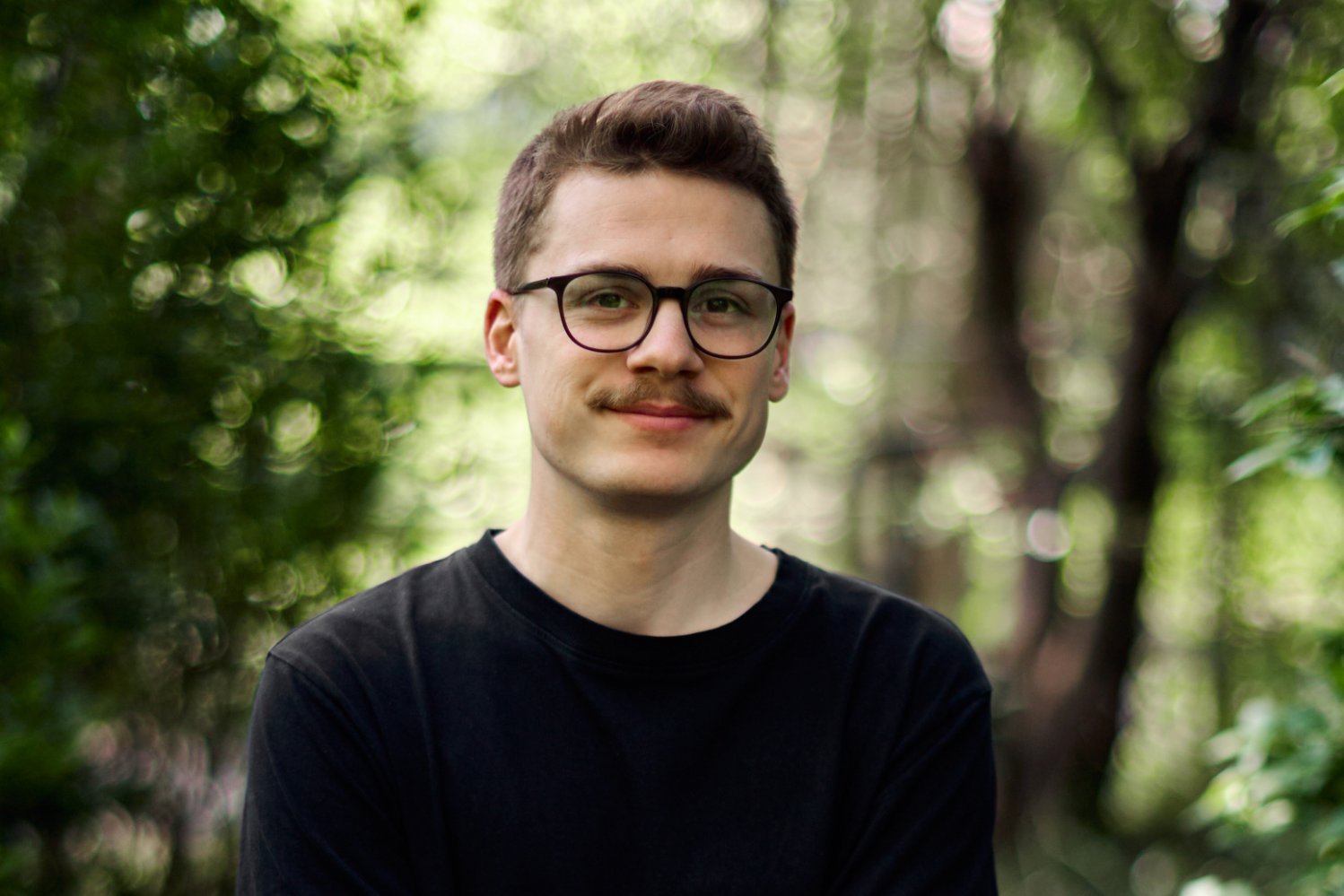
Portrait of doctoral candidates: Felix Hoffmann
Mit dem ESF Plus Promotionsstipendium haben 2025 fünf junge Forschende ihr Forschungsvorhaben an der HTW Dresden begonnen. Im Interview erzählt Stipendiat Felix Hoffmann von seinem bisherigen Werdegang.
In 2025, five young researchers began their doctorates at HTW Dresden with the support of the ESF Plus doctoral scholarship. One of them is Felix Hoffmann, supervised by Prof. Joanna Maria Dauner (Faculty of Design). In this interview, he tells us more about himself and his research.
Tell us briefly about your PhD topic.
I studied design at the HTW Dresden in the Bachelor's and Master's programmes and have been doing my doctorate since January as part of a cooperative doctoral project at the HTW Dresden and TU Dresden. In my doctorate, I'm researching the topic of ‘Designing innovative concepts for the participatory design of urban water areas and noise protection solutions’.
How did you come up with the idea of doing a doctorate and what motivated you to do it?
The suggestion to do a doctorate actually came from a teacher at the Faculty of Design at HTW Dresden. They drew my attention to the ESF doctoral scholarship, which specifically supports young researchers in Saxony. Without this impulse, I probably wouldn't have embarked on this path straight away, which is why I am very grateful for this recommendation.
As the HTW Dresden itself does not have the right to award doctorates, cooperation with a university institution was necessary. With the Chair of Technical Design at the Faculty of Mechanical Engineering at TU Dresden, I found a very experienced and open research team and thus the perfect co-operative institution. They have a lot of experience with doctorates in various fields of design research.
What resources and networks help you the most during your doctoral studies and research?
The regular dialogue with my supervisors - both at the HTWD and the TU Dresden - is key for me. The interdisciplinary perspective that results from this provides many exciting impulses.
Another great added value is the doctoral round table at the Technical Design department: doctoral students from different phases of their doctorate meet there to give each other feedback, share experiences and reflect on challenges together. This informal exchange at eye level is particularly valuable for me.
In addition, the research coordinators at HTWD and TUD offer helpful information, e.g. on funding, qualification programmes or events.
What does your typical day look like at the moment?
A typical working day for me usually starts at around 8am in the office. In the current phase, I spend a lot of time researching the literature, gathering theoretical foundations and structuring my research design. As I am still relatively new to this, my everyday life is strongly characterised by reflection, conception and planning. As part of a teaching contract at the HTWD, I have also taken on a module this semester in which I introduce students to modelling. I teach practical skills and support the students in implementing their own modelling projects.
In addition to pure research work, my funding also includes qualification programmes. This means that I regularly take part in workshops, training courses and events - e.g. on academic writing, gender equality or good teaching. These formats not only expand my knowledge, but also help me to develop as a researcher and teacher. Of course, research is also communication: attending conferences, networking with colleagues and exchanging ideas with practice partners are also part of my everyday life, albeit less frequently.
Do you already know what you want to do afterwards?
As I'm still at the beginning of my doctorate, it's difficult to formulate a specific career path. However, I would like to use the doctoral period to consciously gain experience in the areas of teaching, research and business. The doctorate offers me the opportunity to specialise in content and expand my network at the same time. In the long term, I can imagine working at the interface between design, society and technology.
About the ESF PLUS doctoral programm
The EU and the Free State of Saxony use the ESF PlUS programme to fund projects in areas such as doctoral studies. The aim of the ESF doctoral scholarships is to utilise the individual educational potential of academic specialists, especially women, by expanding their skills with regard to a stable, green, sustainable and digital economy in the Free State of Saxony. Eligible projects are state innovation doctorates, industrial doctorates, projects to reconcile family and academic career, combination of industrial doctorates and projects to reconcile family and academic career with a duration of up to four years. A basic scholarship, for example, is funded with 1,700.00 euros.
Weitere Dokumente/ Antragsformulare finden Sie hier: https://www.htw-dresden.de/en/hochschule/aktuelles/translate-to-english-news
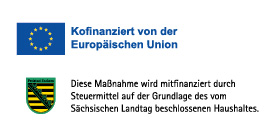
Contact
